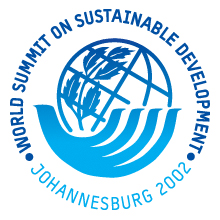The SEED Initiative: Supporting Entrepreneurs for Sustainable Development
Description
Through an international award scheme, intensive capacity-building activities and a research programme, the SEED Initiative endeavors to stimulate and build the capacity of outstanding start-up enterprises executing action on the ground; create a conduit for investment in partnerships; disseminate good practice and lessons-learned from successful partnerships to inspire further new partnerships; and generate evidence-based research to assist policy makers.
The 13-member SEED Board oversees the partnership.
Government of Germany - Federal Ministry for the Environment, Nature Conservation & Nuclear Safety
Government of India - Ministry of Environment and Forests
Government of Netherlands - Ministry for Agriculture, Nature and Food Quality
Government of Norway - Ministry of Foreign Affairs
Government of South Africa - Department of Science & Technology
Government of Spain - Ministry of External Affairs & Cooperation
Government of United Kingdom of Great Britain and Northern Ireland - Department of Environment, Food and Rural Affairs
Government of United States of America - Department of State
Major Groups:
Swiss Re (Switzerland)
UN System:
United Nations Environment Program (UNEP) (Kenya)
United Nations Development Program (UNDP) (United States of America)
Other intergovernmental organizations:
International Institute for Sustainable Development (IISD) (Canada)
Collective Leadership Institute (CLI) (Germany)
International Union for Conservation of Nature (IUCN) (Switzerland)
SDGS & Targets
Goal 2
End hunger, achieve food security and improved nutrition and promote sustainable agriculture
2.1
By 2030, end hunger and ensure access by all people, in particular the poor and people in vulnerable situations, including infants, to safe, nutritious and sufficient food all year round
2.1.1
Prevalence of undernourishment
2.1.2
Prevalence of moderate or severe food insecurity in the population, based on the Food Insecurity Experience Scale (FIES)
2.2
By 2030, end all forms of malnutrition, including achieving, by 2025, the internationally agreed targets on stunting and wasting in children under 5 years of age, and address the nutritional needs of adolescent girls, pregnant and lactating women and older persons
2.2.1
Prevalence of stunting (height for age <-2 standard deviation from the median of the World Health Organization (WHO) Child Growth Standards) among children under 5 years of age
2.2.2
Prevalence of malnutrition (weight for height >+2 or <-2 standard deviation from the median of the WHO Child Growth Standards) among children under 5 years of age, by type (wasting and overweight)
2.2.3
Prevalence of anaemia in women aged 15 to 49 years, by pregnancy status (percentage)
2.3
2.3.1
Volume of production per labour unit by classes of farming/pastoral/forestry enterprise size
2.3.2
Average income of small-scale food producers, by sex and indigenous status
2.4
By 2030, ensure sustainable food production systems and implement resilient agricultural practices that increase productivity and production, that help maintain ecosystems, that strengthen capacity for adaptation to climate change, extreme weather, drought, flooding and other disasters and that progressively improve land and soil quality
2.4.1
Proportion of agricultural area under productive and sustainable agriculture
2.5
By 2020, maintain the genetic diversity of seeds, cultivated plants and farmed and domesticated animals and their related wild species, including through soundly managed and diversified seed and plant banks at the national, regional and international levels, and promote access to and fair and equitable sharing of benefits arising from the utilization of genetic resources and associated traditional knowledge, as internationally agreed
2.5.1
Number of (a) plant and (b) animal genetic resources for food and agriculture secured in either medium- or long-term conservation facilities
2.5.2
Proportion of local breeds classified as being at risk of extinction
2.a
2.a.1
The agriculture orientation index for government expenditures
2.a.2
Total official flows (official development assistance plus other official flows) to the agriculture sector
2.b
Correct and prevent trade restrictions and distortions in world agricultural markets, including through the parallel elimination of all forms of agricultural export subsidies and all export measures with equivalent effect, in accordance with the mandate of the Doha Development Round
2.b.1
Agricultural export subsidies
2.c
Adopt measures to ensure the proper functioning of food commodity markets and their derivatives and facilitate timely access to market information, including on food reserves, in order to help limit extreme food price volatility
2.c.1
Indicator of food price anomalies
SDG 14 targets covered
Deliverables & Timeline
Resources mobilized
Partnership Progress
Feedback
Action Network


Timeline
Entity
SDGs
More information
Countries













Contact Information
Jona Liebl, Communciations Specialist
